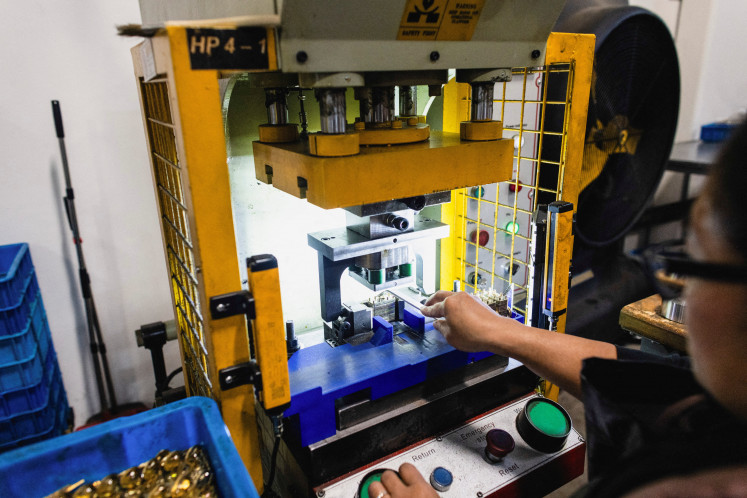Popular Reads
Top Results
Can't find what you're looking for?
View all search resultsPopular Reads
Top Results
Can't find what you're looking for?
View all search resultsChina vows to raise household consumption 'significantly'
While China's economic goals for 2026-2030 further tilt toward tech innovation and industrial upgrades, policymakers promised more efforts to boost domestic consumption.
Change text size
Gift Premium Articles
to Anyone
C
hina will increase the proportion of government investment for people's livelihoods and raise the percentage of household consumption of gross domestic product (GDP) "significantly" over the next five years, officials told reporters on Friday.
The comments came after China unveiled its outline for economic and other policy goals for 2026-2030 on Thursday, which showed the leadership prioritized manufacturing and technology-reliance over consumption.
The country's tech-focused STAR50 index rose 3 percent on Friday morning, responding to the outline.
"China should strive for breakthroughs in key technologies," President Xi Jinping said in an August meeting on the new five-year plan, state media Xinhua reported on Friday.
He added that the integrated development of education, science and technology talent should be promoted.
While the plan further tilts toward tech innovation and industrial upgrades, policymakers promised more efforts to boost domestic consumption.
The first major goal of the next five-year plan is to keep economic growth at a "reasonable" range and "significantly" raise the percentage of household consumption of GDP, said Han Wenxiu, the deputy director of the Central Financial and Economic Affairs Commission, at a press conference in Beijing.
He did not mention an exact percentage.
China's household consumption lags global averages by about 20 percentage points of GDP, while debt-driven investment is roughly 20 points ahead.
"Strengthening the domestic market is a strategic underpinning for China's modernization [...] There is room and potential for China to expand its domestic demand," said Zheng Shanjie, the head of the National Development and Reform Commission.
China's economic growth slowed to its weakest pace in a year in the third quarter as fragile domestic demand left it heavily reliant on the unexpected humming of its export factories despite U.S. tariffs, stoking concerns about government efforts to address long-standing structural imbalances.
China will plan a number of major policies, reforms and projects and speed up the planning of policy measures for next year to ensure a good start to the 15th five-year plan, according to state television, which cited a cabinet meeting.
The central bank will aim to calibrate the intensity, timing and pace of monetary policy to support stable economic growth and maintain the stable operation of stock, bond and foreign exchange markets, it said in a statement.
Jiang Jinquan, China's Communist Party research office head, said at the press conference that he expected the country's GDP to hit 140 trillion yuan (US$19.7 trillion) this year, compared with 101.5 trillion yuan during January to September.











